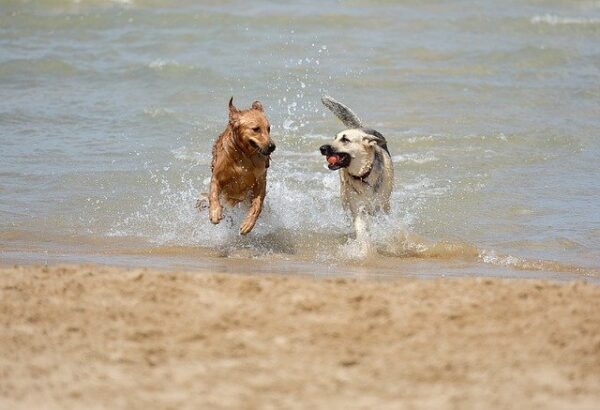Reports of dog flu outbreak concern local residents
Canine flu vaccine is available
–Local residents are expressing concern about a possible outbreak of canine flu in San Luis Obispo County. Several readers called the Paso Robles Daily News asking questions about the dog flu. Some of the concern is based on reports from Los Angeles County where 279 confirmed cases and 120 suspected cases of CIV H3N2 were reported between July and September 22, 2021.
Local veterinarians, Dr. James Wiest from the Paso Robles Veterinary Medical Clinic, and Dr. Michael Ramos from the El Camino Veterinary Hospital said there are actually two strains of the canine influenza virus: H3N8 and H3N2.
Wiest said his clinic hasn’t seen a case of canine flu in a couple of years. Ramos said his veterinary hospital has seen three confirmed cases in the past month, and 20-25 suspected cases. “We normally don’t see this disease here,” said Ramos. Both veterinarians said that canine flu is most commonly seen in dogs that have been boarded, in doggy day care, or in dog parks or other situations where dogs come into close contact with other dogs.
“This disease is endemic to the Los Angeles area,” said Ramos. Wiest said, “We are on the travel corridor between Los Angeles and the Bay Area, although not as many cases are reported up there.” Visitors from outside the area who travel with their dogs visit the beaches, the dog parks, take their dogs for walks, and sometimes kennel locally. A friendly sniff between an uninfected dog and an infected one could be all it takes.
“If your dog has been in contact with other dogs, keep an eye out for the symptoms,” said Wiest. “We don’t see a lot of cases here because we are not as densely populated as Southern California or the Bay Area and South Bay areas.”
Dogs that have contracted the canine flu show symptoms within approximately 14 days after contact with an infected dog. The symptoms include:
- Fever
- Lethargy
- Cough
- Loss of appetite
- Sneeze
- Nasal discharge
Some dogs may show only a few symptoms or not show any. “Most dogs recover,” said Ramos. “Those that don’t tend to have underlying health conditions.” A visit to the veterinarian is a good precaution anytime your dog seems to be a little off from normal behavior.
“It’s an advisable precaution to have your dogs vaccinated for the viruses,” said Wiest, “especially if you are going to be kenneling or take your dog to the beach or dog parks.” Ramos said to be sure to ask for the H3N8/H3N2 bivalent vaccine.
An infected dog cannot be vaccinated until 28 days after the last clinical sign. But healthy dogs can be vaccinated any time and especially before spending time in doggie day care or a kennel. “Some of the local kennels are starting to require the vaccine,” said Ramos.
The vaccine is administered in two doses, with the second booster dose following the first by two to four weeks. If you are planning on traveling with your dog or boarding while you are away, contact your veterinarian to start the vaccine as soon as possible.
Additional resources for more information, in addition to local veterinarians are:
- Center for Disease Control: Key Facts about Canine Influenza (Dog Flu)
- California Veterinary Medical Association: Canine Influenza
Comments
Jackie Iddings is a contributing reporter and photographer for the Paso Robles Daily News.





















